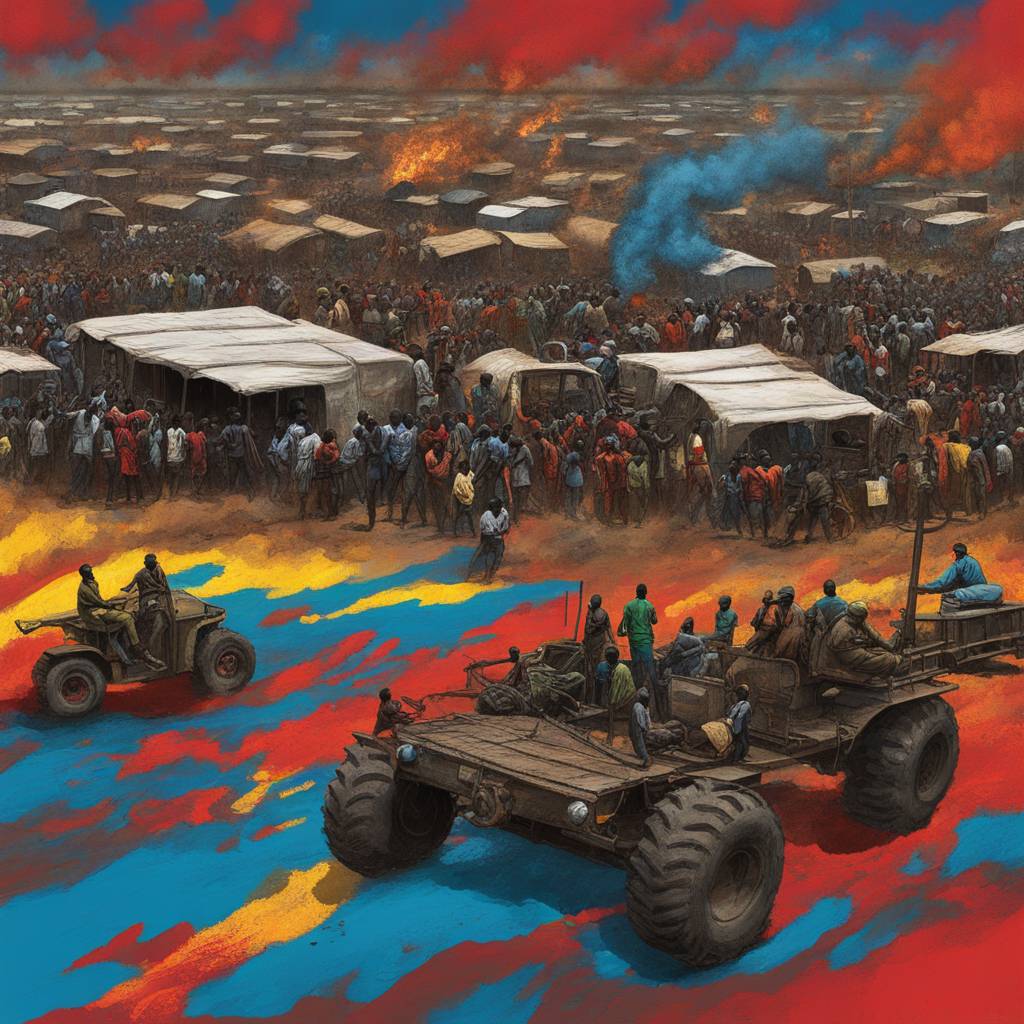Violence and insecurity in South Sudan may be exacerbated following the damage to one of the country’s key oil pipelines last month. The pipeline, which passes through Sudan, was damaged in an area controlled by Sudan’s paramilitary Rapid Support Forces. The suspension of oil loadings due to ongoing fighting has raised concerns about the potential collapse of South Sudan’s political economy. Oil revenues account for a significant portion of the country’s budget, with around 90 percent of revenue coming from oil. However, very little of this money goes towards the national budget, leading to fears that a disruption in oil payments could lead to increased poverty, violence, and lawlessness.
Daniel Akech Thiong, a South Sudanese political economist, noted that most South Sudanese people may not immediately feel the impact of the oil pipeline stoppage. Many citizens are already struggling due to inflation and the government’s failure to pay civil servants. However, there is a sentiment of relief among the grassroots population, as they feel they have not benefited from the oil revenues in the past. Even if Kiir’s inner circle were to be affected by a halt in oil revenue, it is unlikely that they would rise up against him due to their dependence on his privileges and gifts.
While a full-scale civil war is not imminent, there are concerns about the possibility of state collapse in the future. Kiir is preparing for an election at the end of December, but there are doubts about the country’s readiness for a credible process. The lack of funds for elections could lead to disappointment and potential conflict among the population. Additionally, the depreciation of South Sudan’s currency due to the loss of oil revenue could further destabilize the economy and lead to an increase in armed violence and human rights violations.
In the past, South Sudan has experienced halts in oil production, leading to the accumulation of debts that continue to burden the country. Kiir has been accused of mismanaging loan money intended for essential services, further impoverishing the population. With oil exports affected once again, experts speculate that Kiir may seek new loans to maintain the loyalty of his inner circle. The possibility of securing loans from countries like the UAE is being considered, although challenges remain in repaying debts accumulated during previous oil stoppages.
Experts suggest that the UAE could offer a loan to South Sudan to expand its influence in the region, potentially influencing Sudan’s political agenda. However, reports of the UAE providing military support to Sudan’s RSF raise concerns about the country’s intentions. The IMF is also considered a potential source of financial assistance, despite South Sudan’s struggles with repayment. Oil stoppages hinder the country’s ability to raise funds, exacerbating existing issues of corruption and mismanagement. Ultimately, the lack of oil revenue poses significant challenges for South Sudan, highlighting the country’s heavy dependence on oil and the potential consequences of disruptions in the industry.













